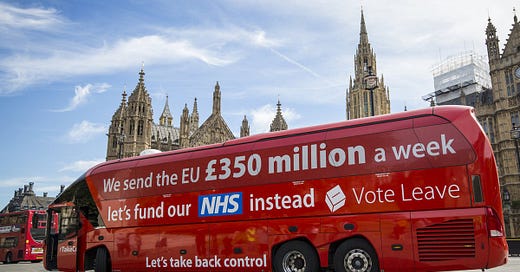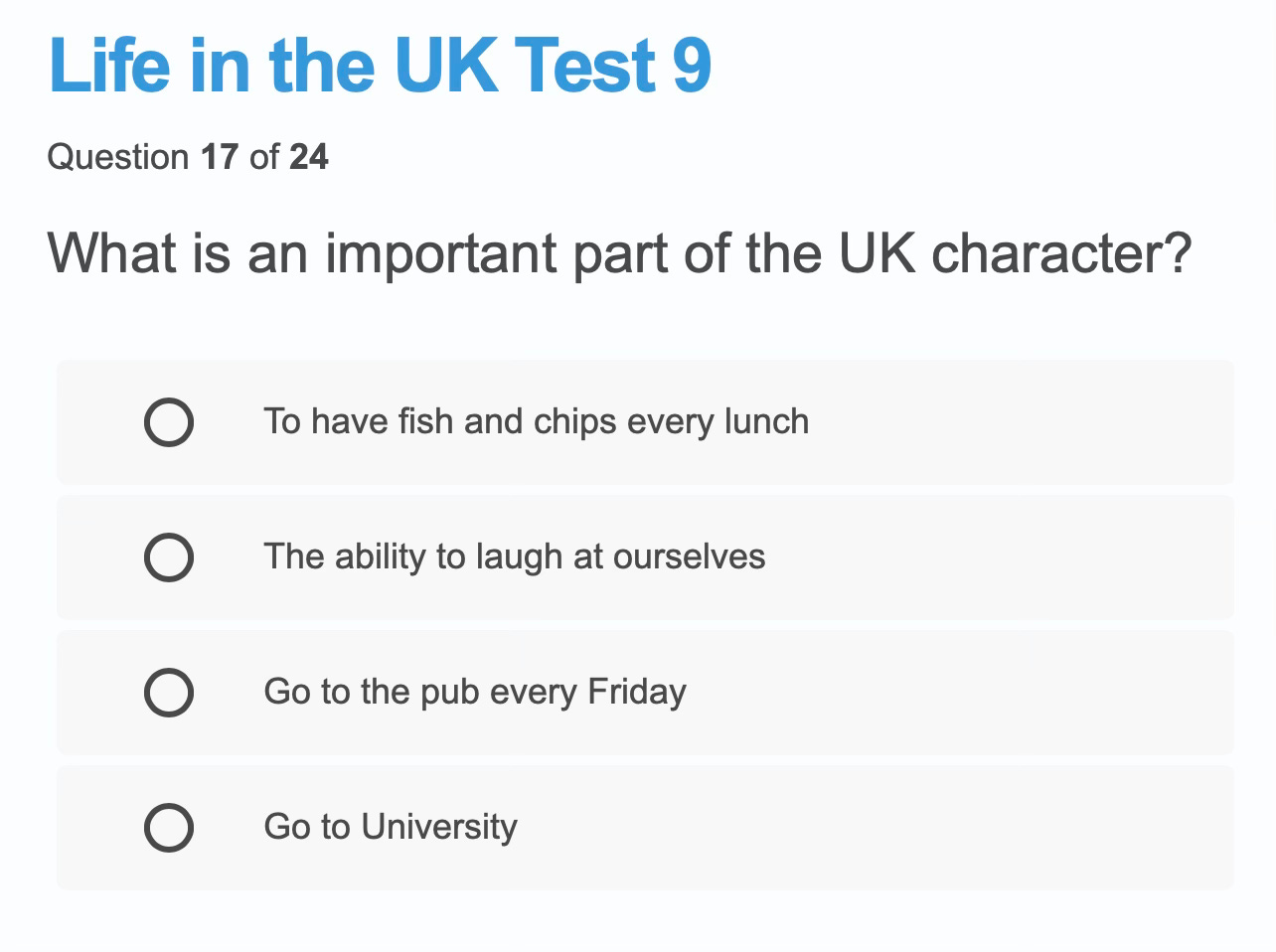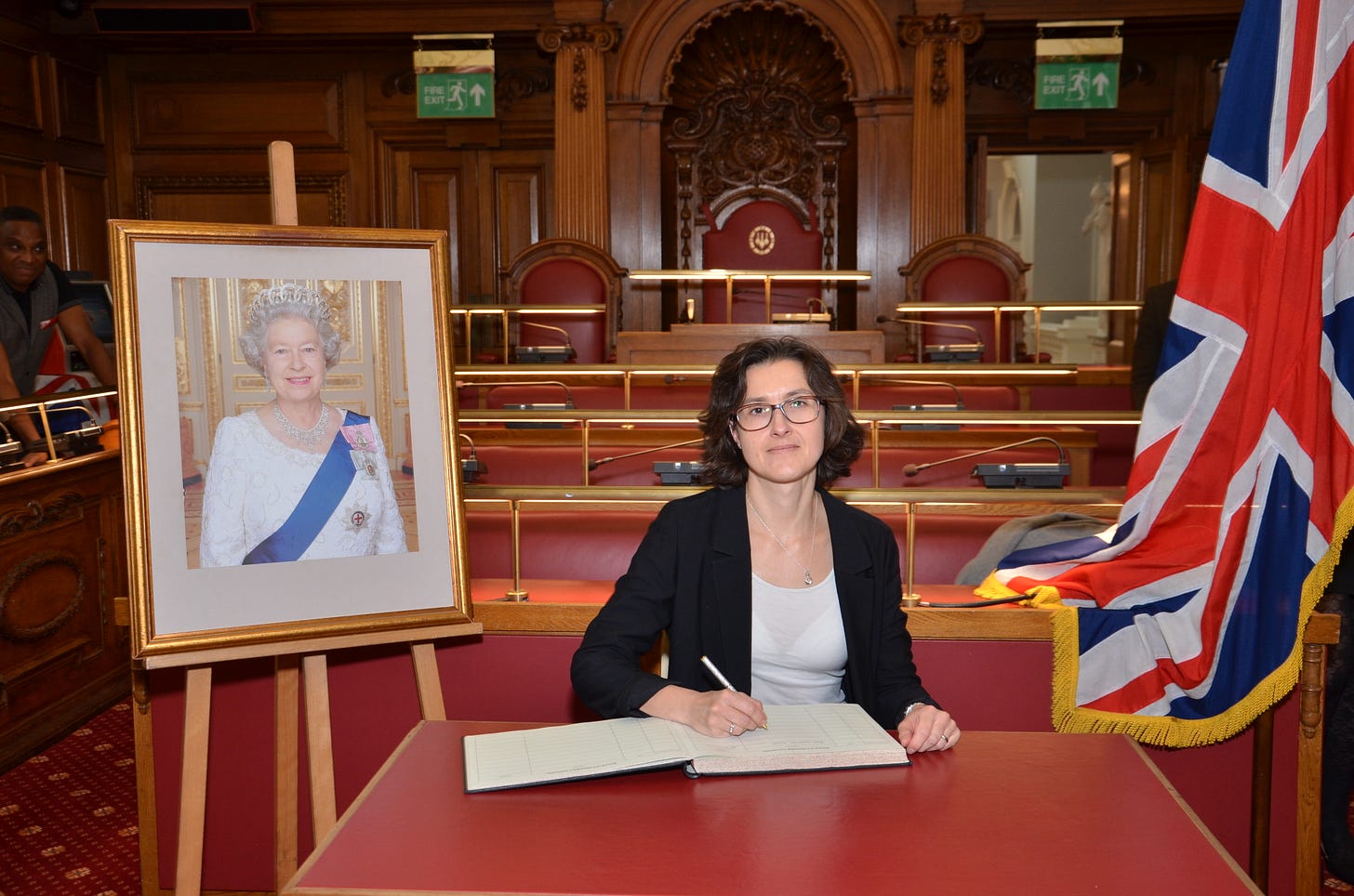Life in the UK: A Test
Stockholm is not a book about Brexit. But Brexit made me want to write it. Here is why.
When did Germany invade Poland?
• 1942
• 1941
• 1940
• 1939
Life in the UK Test.1
Stockholm is a book about why questions like “When did Germany invade Poland?” appear on a citizenship test for another country altogether, and how that tells us something about what the idea of a nation is.
In early 2016 I came back from two years in Singapore. I’d never really thought much about how living somewhere else, again, would affect my sense of my adopted home. As I have chronicled elsewhere, I missed London a lot when I was living in the tropics. What I missed the most are some of the things that people hate about London: the weather, the crowds, the grime.
[T]hey change at Piccadilly Circus and get off a stop later at Charing Cross. She notices the grime in the corners of the stairs and corridors of the underground, black soot and dirt accumulated over a century, the patina of all the life that has gone before. It feels comforting, like being part of something, a small cog in the huge machinery of this city stretching across time and space. They pull their suitcases along an empty early morning Strand. All shops and most cafes are still closed. In front of a pub someone is pouring water over the pavement. There is a faint smell of urine in the air. It’s the morning after a Friday night. A homeless man sits in a doorway and screams something incomprehensible at them as they pass, and a light drizzle starts up.
Eva Aldea, Singapore, (Holland House 2023).
I was 19 when I came to the UK to study English Literature. Perhaps it was the hours of pouring over over-priced copies of NME and Select as a teenager in Stockholm, or maybe it was just that people finally laughed at my jokes, but I felt instantly at home.
It is easy as a migrant living in London to forget that you’re from somewhere else, because the place you call home is stitched together by so many disparate threads that it is both everywhere and nowhere.
The result of the referendum came as a surprise, followed by unease. It was all in my head, I thought: I am white, I am middle class, and my accent passes as native with everyone but the most discerning of listeners. I admit I take pleasure in being able reveal my migrant past to unsuspecting xenophobic folk and sit back smugly as they inevitably say something like, “I don’t mean people like you!” (keep digging, mate).
I’d be fine. I had lived in the UK longer than I had not. Then, about a year after the vote I needed to register with a new doctor. I was told I couldn’t without a British passport. I was dumbfounded.2 Luckily, a member of staff at the surgery, a Kiwi, turned a blind eye. It’s not like anyone really knew what they should do with EU citizens in Britain, because nobody had actually thought Brexit through. And many of us Europeans had never thought much about what living in another EU member state meant either, because we didn’t have to.
When I arrived, three years after the Maastricht treaty guaranteed freedom of movement for EU citizen in member states, I was turned away at the local police station where I went to register: I was told I didn’t need to. Simply by showing my Swedish passport and/or proof of my UK address I was given a national insurance number and an NHS number. I gained employment and I paid tax, just as anyone else. I had no papers stating my right of residence, no stamps in my passport recording when I had been in or out of the country. It was a kind of blissful illusion I, and many others, lived under until Brexit revealed how much the sands had shifted beneath our feet.

The accession of new states in the beginning of the new century brought in clarifying directives on freedom of movement from the EU, under which reciprocal access to benefits across borders was limited, partly by nation states themselves.3 The “hostile environment” declared by Teresa May in 2012 tightened rules from the UK side further. I was aware of things shifting, I even wrote about it, but I didn’t realise what it all meant for me until 2016.
The referendum results had already spooked me enough to decide to apply for citizenship, and that’s when I started the spreadsheet tracking the dates I went out of the country and the dates I came in again. The need to supply this information was one of the reasons I hadn’t bothered to apply before. That and the £1,500 price tag. My time in Singapore meant I had to restart the required continuous residency, under which time spent abroad is limited to a maximum of 90 days in any year. Every holiday counts; a spreadsheet was necessary.
Proving continuous residence when you have no actual record of entering or leaving the country is tricky. I ended up printing and sending credit card bills to the Home Office, showing that I had shopped in John Lewis Oxford Street on the dates I needed to have been in the UK – I like to imagine they also proved my credentials as a fully-fledged member of the British middle classes.

But when enough time had elapsed for me to be eligible to apply for naturalisation4 a new post-Brexit rule stated that as an EU citizen I first had to obtain “settled status.” That was when I realised I hadn’t actually been officially resident in the UK for the last twenty years. Being a student doesn’t count, and I’d studied a lot. There were limits on time spent abroad, and I’d travelled a lot. It turned out that there had been periods when I should have had private health insurance, because I’d had no right to benefits in the UK. Having worked as a freelance and an academic on zero hours contracts for many years meant that there had been times when I was counted as simply as a visitor – because these days it is economic activity, not where you lay your head, that defines where you are allowed to live.5 I managed to scrape together five years of sufficiently continuous employment from sometime in the early noughties, since you were allowed to backdate your application for settled status to the earliest eligible period.
Settled status is not the same as permanent residency. It lapses after a time abroad. Returning from Singapore a few years later would have meant finding myself having to apply for a permit to live in my home country. And, no, being married to a Brit wouldn’t help.6
I took the test, I filled in the forms, I proved my movements as best I could, I paid the fee. I even swore an oath of allegiance to the Queen.7 Becoming British because of Brexit made me think about all the nationalities I have, have had and lost, and have never had - Swedish, Polish and Romanian. Having a passport and a having home are two very different things; one does not guarantee the other.
It also made me want to remind people that however much you take back control over your borders, what is outside is still part of what makes you who you are: Germany invading Poland in 1939 may have directly affected my grandparents, but it also changed what it means to be British.
So, I started writing Stockholm.

Do you think you can do better? Try your hand at Life in the UK Practice Tests.
This is a genuine question from the Life in the UK test. The questions change but there is always one in the same vein: Which country did Germany invade in 1939 that led to the UK declaring war on Germany? or Which country did Germany invade in 1939 that led to the UK declaring war on Germany? All applicants for settlement or naturalisation as a British citizen aged between 18 and 65 are required to pass the test. The test has to be taken in designated test centres, where the applicant has 45 minutes to correctly answer at least 18 out of 24 multiple choice questions about British traditions and customs. Taking the test costs £50 (not included in the citizenship application fee).
I would not have been able to register with a doctor in Sweden - after many years of not living there, I had officially become an utlandsvensk or “abroad Swede,” a non-resident Swedish citizen with limited access to healthcare, social services and benefits.
The rather wooly clause in Article 3 of Maastricht: “(c) an internal market characterized by the abolition, as between Member States, of obstacles to the free movement of goods, persons, services and capital,” was replaced by Article 7 of the new directive, which begins thus: “1. All Union citizens shall have the right of residence on the territory of another Member State for a period of longer than three months if they: (a) are workers or self-employed persons in the host Member State; or (b)have sufficient resources for themselves and their family members not to become a burden on the social assistance system of the host Member State during their period of residence and have comprehensive sickness insurance cover in the host Member State.” (my emphases)
Naturalisation. What a word, huh? The meaning of admitting a foreigner to the rights of citizenship seems to be the original, from French, but by the 19th century it also acquired the sense of a plant or animal establishing itself in an environment where it is not native, that is, an invasive species.
The same applies in most countries. In addition, there are many nations which issue so called “golden visas” for those who invest or buy property or otherwise contribute to the economy. You have to start with a visa of course, before you can even think about applying for permanent residency. There are a number of ways to get a visa for the UK but almost all involve having an income, or savings. The basic working visa presupposes an income of at least the “going rate” for your profession.
Contrary to popular belief, being married to someone does not give you automatic right to residence. However, if you are married to a Brit you get a discount on the income required for you to stay in the country. No longer do you have to be paid at the going rate, you merely have to prove that you can support yourselves as a couple with a minimum gross annual income of £18,600. You must earn extra if you have children: £3,800 a year for your first child. £2,400 a year for each child after that.
It is a requirement to attend the citizenship ceremony, but you get a choice between a religious oath or a secular affirmation:
Oath of allegiance
I, (name), swear by Almighty God that, on becoming a British citizen, I will be faithful and bear true allegiance to His Majesty King Charles III, his Heirs and Successors, according to law.
Affirmation of allegiance
I (name) do solemnly, sincerely and truly declare and affirm that on becoming a British Citizen, I will be faithful and bear true allegiance to His Majesty King Charles III, his Heirs and Successors, according to law.








"Having a passport and a having home are two very different things; one does not guarantee the other." Exactly--much of my book Ashes and Stones is about this. I, too, saw the writing on the wall when Teresa May issued her hostile environment master plan. I became a citizen because I'd lived in the UK so long I had no other home-- though the process was equally absurd, hellish and costly. My 'otherness' still begins British interviews and most casual conversations--I don't have an accent that passes as native. The question I most remember about the life in the UK test was "What time do pubs close?" The law had changed the week before and the new policy, based on different licences, wasn't listed in the answers. Thanks for another fascinating post!
To have fish and chips EVERY LUNCH.